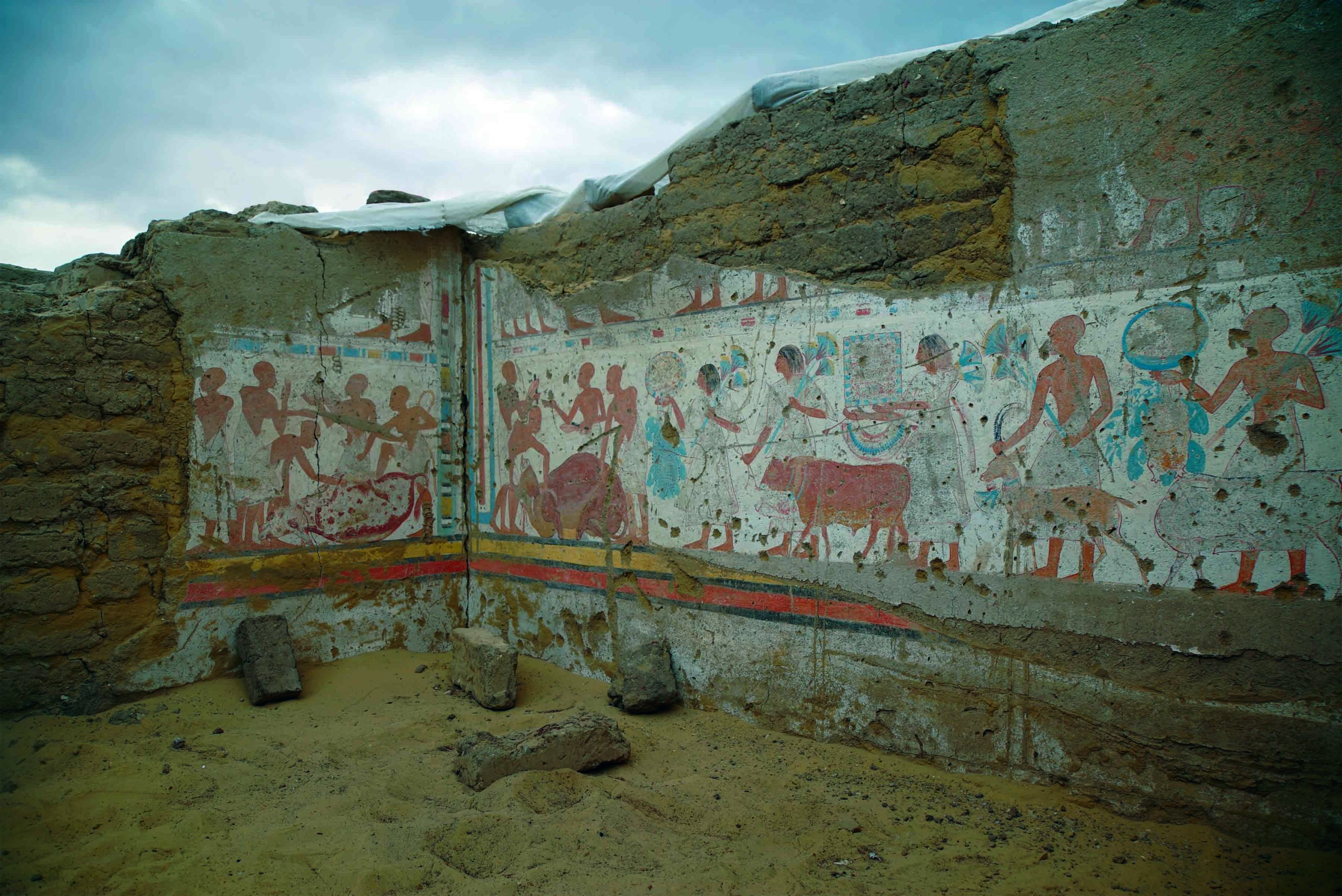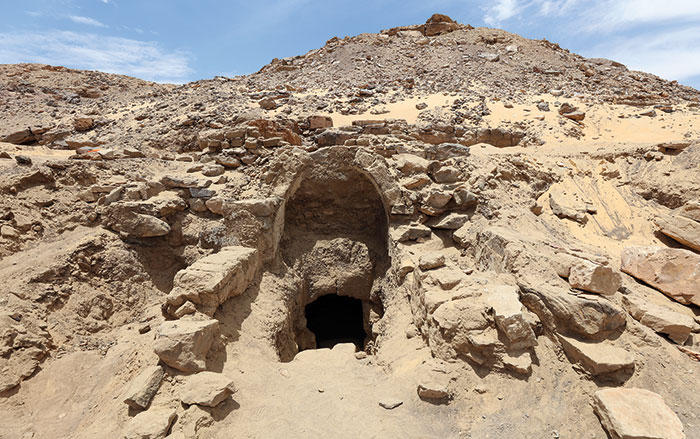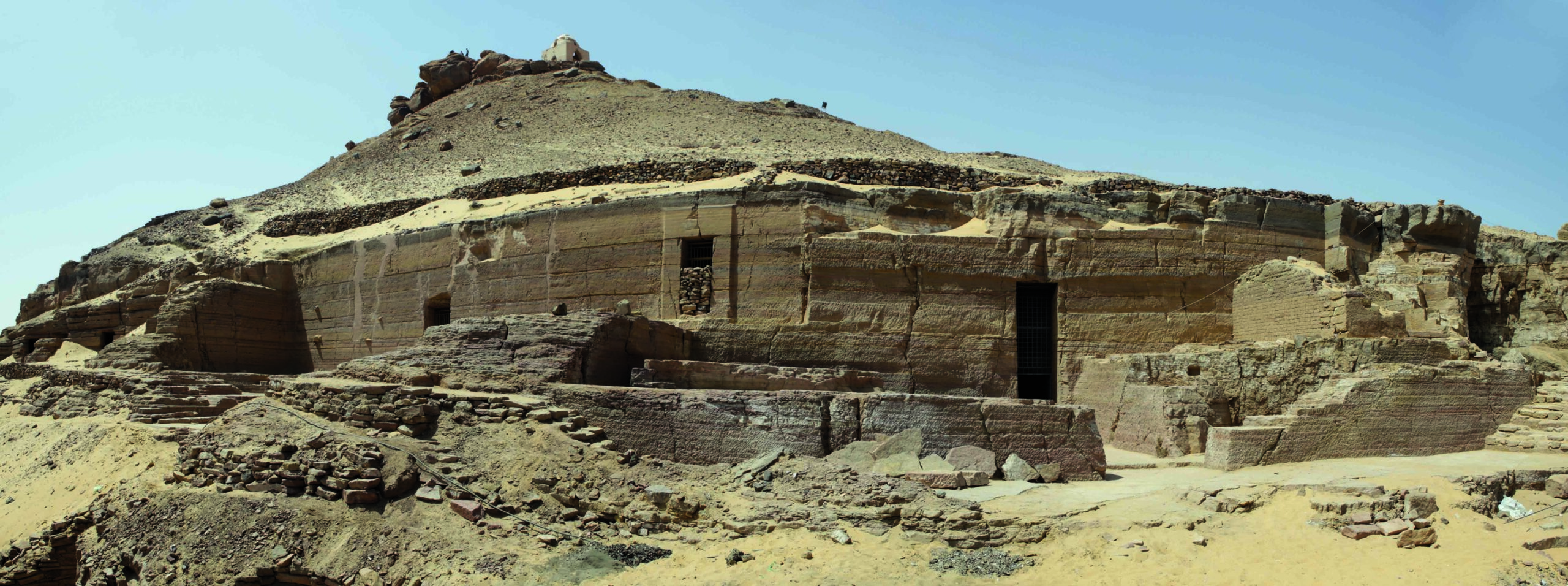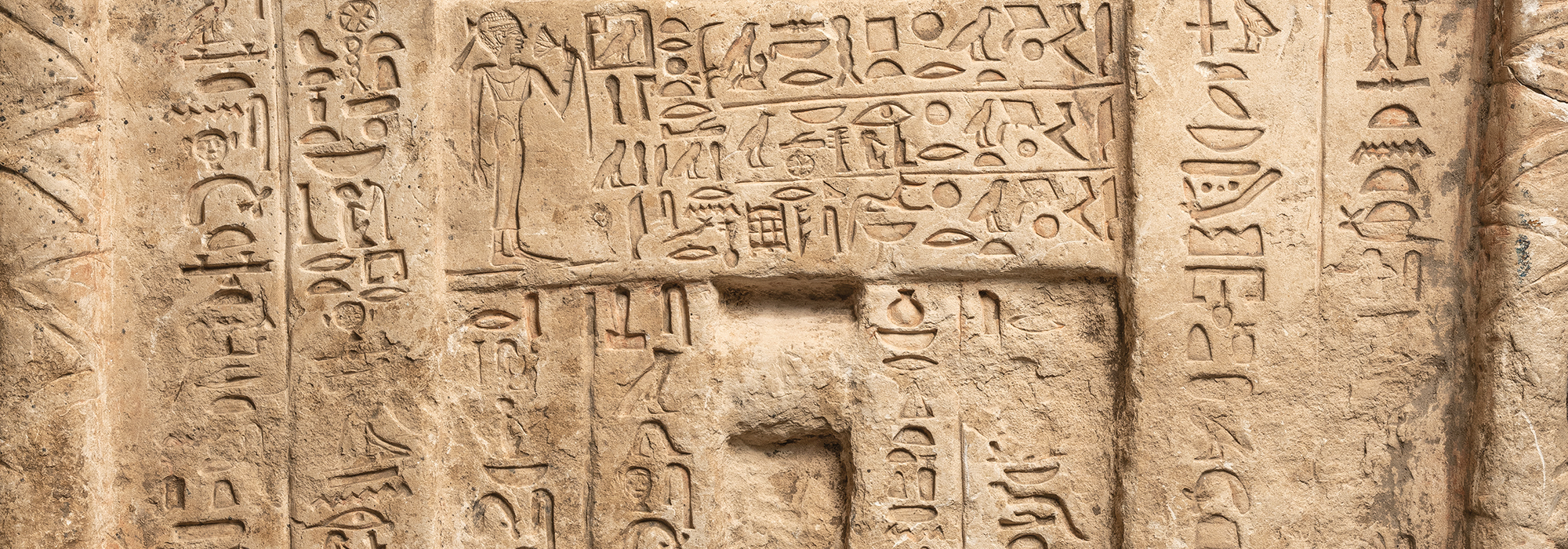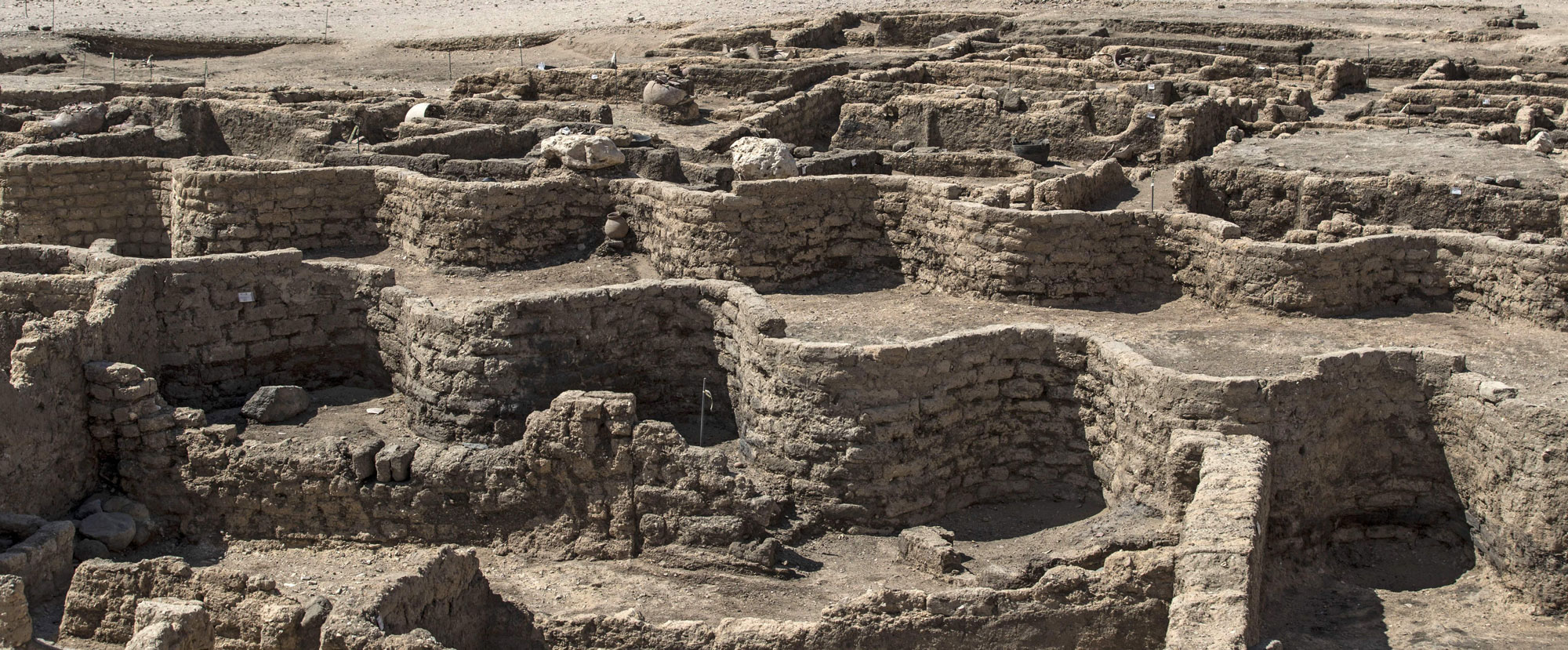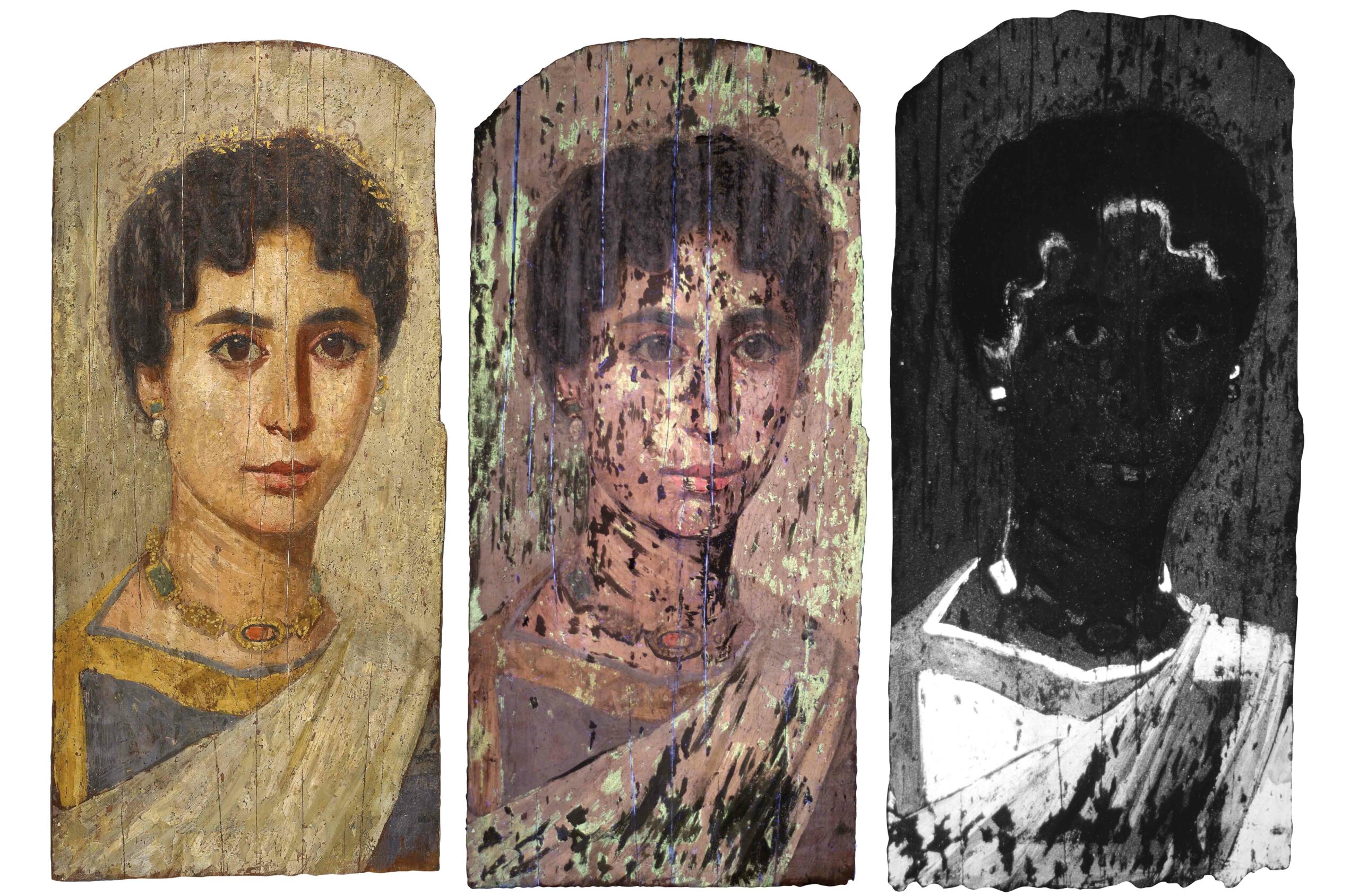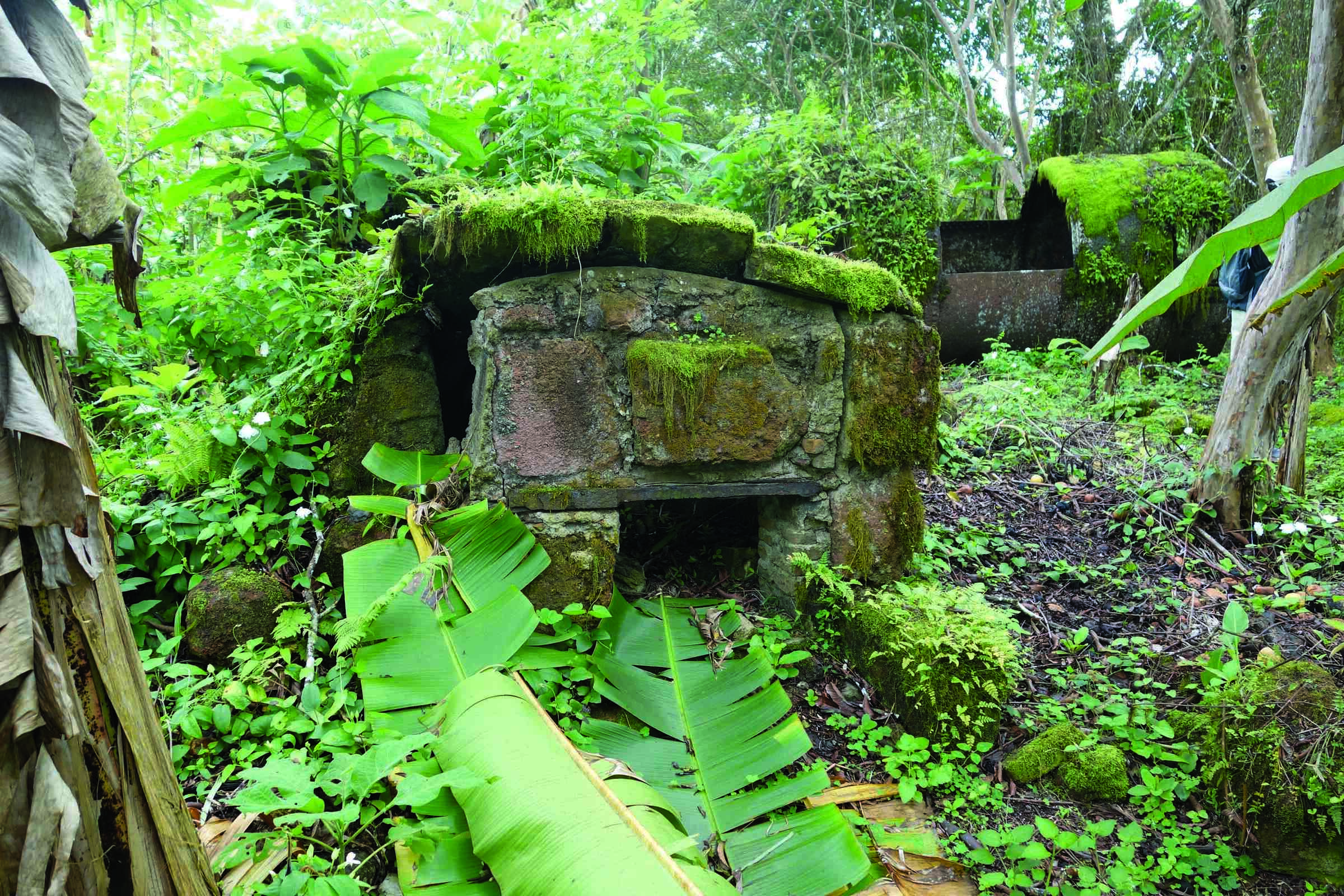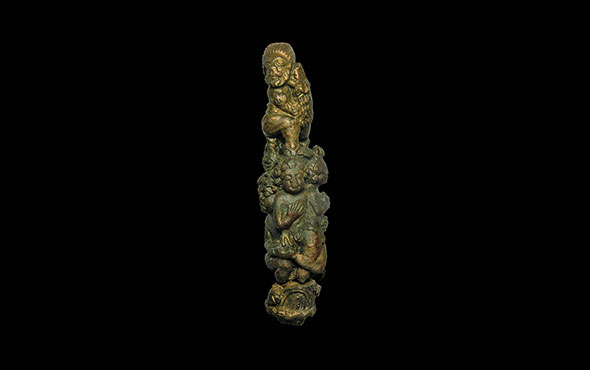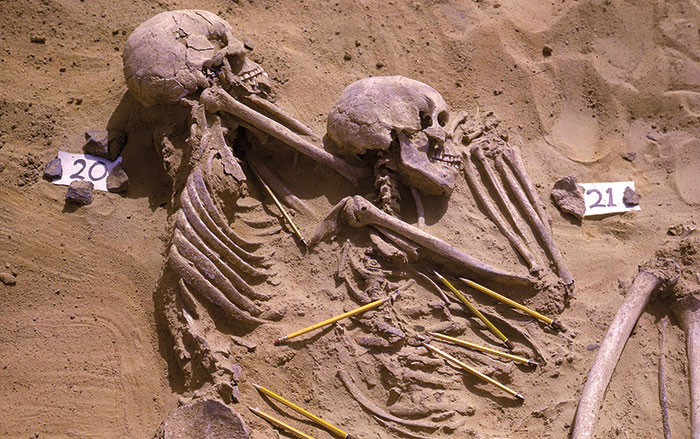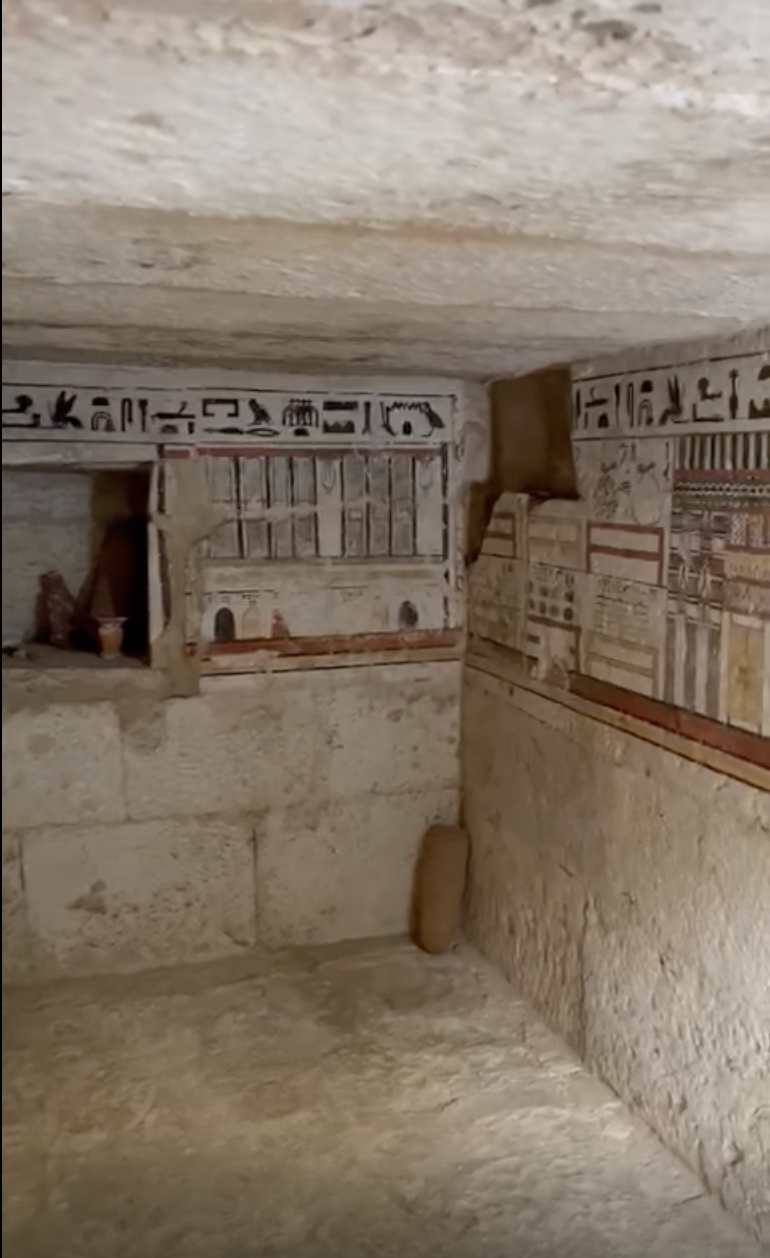
CAIRO, EGYPT—Ahram Online reports that five tombs have been discovered in the Saqqara necropolis by a team of Egyptian researchers. The tombs, located on the northeastern side of the King Merenre pyramid, have been dated to the Old Kingdom (2649–2150 B.C.) and First Intermediate (2150–2030 B.C.) periods. Powerful officials were buried in the tombs, according to Mostafa Waziri of the Supreme Council of Antiquities. The first tomb, he explained, consists of a deep burial shaft and a chamber decorated with scenes of offering tables, sacred oils, and an image of the palace. This tomb contained a limestone sarcophagus. The second tomb is thought to have belonged to the wife of a man named Yaret, while the third belonged to Pepi Nefhany, who held positions as supervisor of the great house, priest, and purifier of the house. A woman named Petty, who was a priest of Hathor, was buried in the fourth tomb, and Henu, an overseer and supervisor of the royal house, was buried in the fifth tomb. The team will continue to excavate and study the well-preserved tombs. To read about another tomb recently unearthed at Saqqara, go to "The Treasurer's Tomb."


